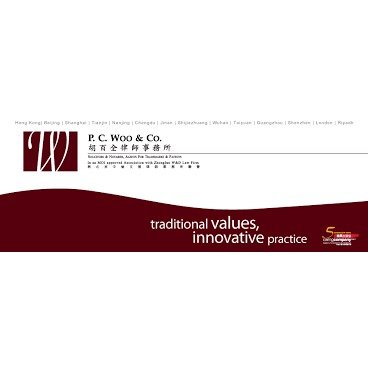Best Landlord & Tenant Lawyers in Central
Share your needs with us, get contacted by law firms.
Free. Takes 2 min.
Free Guide to Hiring a Real Estate Lawyer
List of the best lawyers in Central, Hong Kong
About Landlord & Tenant Law in Central, Hong Kong
The Landlord and Tenant (Consolidation) Ordinance is the primary piece of legislation governing rental agreements in Central, Hong Kong. It predominantly regulates matters related to rental payments, lease agreements, rights and responsibilities of landlords and tenants, and procedures around eviction or termination of tenancies. In Hong Kong, it is customary that leases are written in both English and Chinese, however, English versions are predominantly used in central districts of the city.
Why You May Need a Lawyer
Both landlords and tenants can encounter challenges that may necessitate legal assistance. As a tenant, you may need a lawyer to help you understand the terms of your lease, handle disputes regarding rent or maintenance issues, and protect your rights in eviction proceedings. On the other hand, landlords could require legal assistance for drafting rental agreements, handling tenant violations, dealing with problematic tenants, or navigating complex eviction processes.
Local Laws Overview
The key local laws pertinent to Landlord and Tenant in Central, Hong Kong include tenant’s obligation to pay rent on time, landlord's responsibility for property repairs and maintenance, and both parties' obligation to comply with terms of the lease agreement. Notably, security deposits cannot exceed the equivalent of two months’ rent. Any attempt to increase rent within the first year of lease is considered illegal. Additionally, landlords must provide at least one month's notice if they wish to increase the rent after the initial first year of tenancy.
Frequently Asked Questions
1. What happens if a lease is broken prematurely?
Generally, if a tenant decides to break the lease early, they may forfeit their security deposit. However, the specific terms will depend on the particulars of the lease agreement.
2. Can a landlord enter the property without permission?
No, unless it's indicated otherwise in the lease agreement, landlords generally cannot enter the rented premises without prior notice.
3. What is the process for eviction?
The eviction process involves giving the tenant a written notice to quit. If the tenant refuses to move out, the landlord can initiate legal proceedings. The process can be complex, and it is advisable to seek legal assistance.
4. Can a landlord raise the rent anytime they want?
No, landlords can't increase the rent during the first 12 months of the tenancy and are required to provide at least one month’s notice if they plan to do so afterwards.
5. What can a tenant do if a landlord fails to make necessary repairs?
Tenants can notify the landlord, and if no action is taken, they can apply to the court for an order compelling the landlord to carry out the repairs or allow for rent reduction.
Additional Resources
The Estate Agents Authority and The Rating and Valuation Department are two main governmental bodies that provide detailed information and guidelines related to properties and rental agreements in Hong Kong. For free legal services, one can consider reaching out to The Duty Lawyer Service or Hong Kong Legal Aid Department.
Next Steps
If you need legal assistance in Landlord & Tenant matters, the first step is to consult a lawyer who specializes in this field. Ensure to gather relevant documents like your lease agreement, payment records or any communication records with your landlord, or tenant before meeting your lawyer. Remember, understanding your rights and obligations is key to protecting your interests.
Lawzana helps you find the best lawyers and law firms in Central through a curated and pre-screened list of qualified legal professionals. Our platform offers rankings and detailed profiles of attorneys and law firms, allowing you to compare based on practice areas, including Landlord & Tenant, experience, and client feedback.
Each profile includes a description of the firm's areas of practice, client reviews, team members and partners, year of establishment, spoken languages, office locations, contact information, social media presence, and any published articles or resources. Most firms on our platform speak English and are experienced in both local and international legal matters.
Get a quote from top-rated law firms in Central, Hong Kong — quickly, securely, and without unnecessary hassle.
Disclaimer:
The information provided on this page is for general informational purposes only and does not constitute legal advice. While we strive to ensure the accuracy and relevance of the content, legal information may change over time, and interpretations of the law can vary. You should always consult with a qualified legal professional for advice specific to your situation.
We disclaim all liability for actions taken or not taken based on the content of this page. If you believe any information is incorrect or outdated, please contact us, and we will review and update it where appropriate.
















